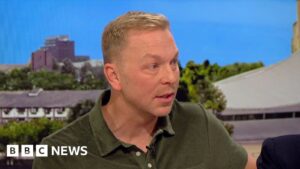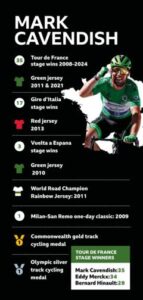Steven Bartlett sharing harmful health misinformation in Diary of CEO podcast
Disproven health claims are accepted with little challenge by host on number one podcast, BBC investigation finds.
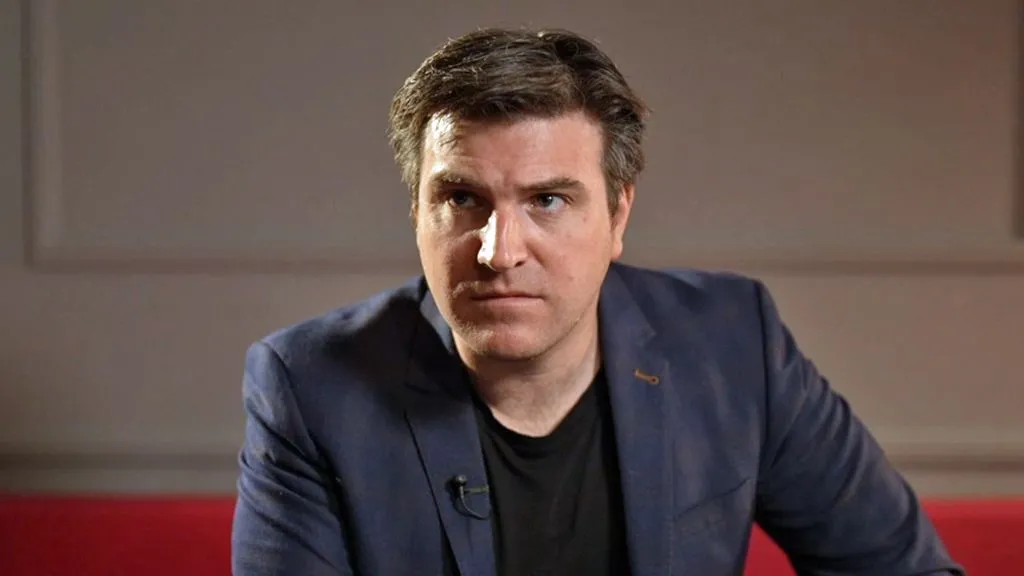
 BBC
BBCDiary of a CEO host Steven Bartlett is amplifying harmful health misinformation on his number-one ranked podcast, a BBC investigation has found.
Recent claims from guests – including that cancer can be treated by following a keto diet, rather than proven treatments – were allowed by the Dragons’ Den star with little or no challenge. Experts have told us failing to question these disproven claims is dangerous because it creates a distrust of conventional medicine.
In an analysis of 15 health-related podcast episodes, BBC World Service found each contained an average of 14 harmful health claims that went against extensive scientific evidence.
Flight Studio – the podcast production company owned by Mr Bartlett – said guests were offered “freedom of expression” and were “thoroughly researched”.
The podcast launched in 2017 focusing on entrepreneurship and business. It soared in popularity as figures such as influencer Molly Mae and Airbnb founder Brian Chesky shared their tips for success.
But in the past 18 months, Mr Bartlett has concentrated more on health, with guests presented as leading experts in their fields. Their views receive little challenge.
The interviews are also posted to Mr Bartlett’s YouTube channel, which has seven million subscribers. Since this content shift last year, its monthly views have increased from nine million to 15 million.
Mr Bartlett told The Times in April he expected his podcast to make £20m this year, mainly from advertising.
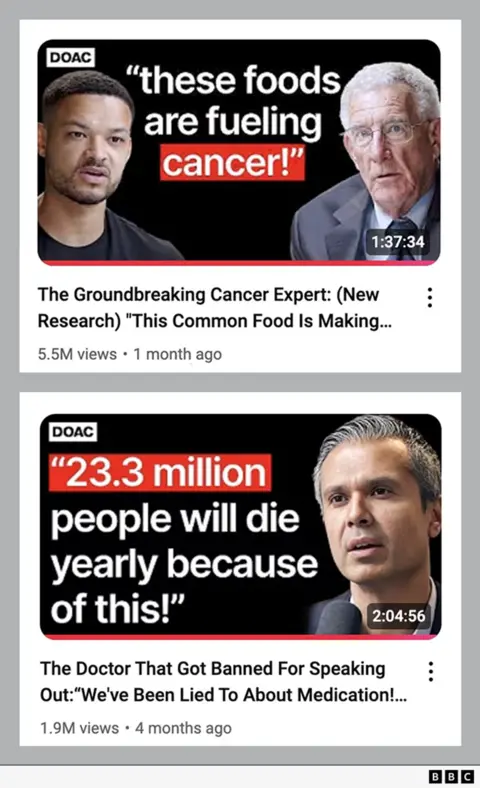 YouTube
YouTubeWe looked at the 23 health-related episodes released between April and November this year, fact checking – with four medical experts – 15 which contained potentially harmful claims.
The experts we spoke to were cancer research professor David Grimes, public confidence in healthcare professor Heidi Larson, NHS diabetes adviser Dr Partha Kar and surgeon Dr Liz O’Riordan.
We recorded harmful claims as advice that, if followed, could lead to negative health outcomes.
In that eight-month window, some guests billed as health experts shared accurate information, but most were spreading misleading claims. These included:
- Anti-vaccine conspiracies, stating that Covid was an engineered weapon
- Poly-cystic ovarian syndrome, autism and other disorders can be “reversed” with diet
- Evidence-based medication is “toxic” for patients, downplaying the success of proven treatments
Podcasters may claim they are sharing information, but they are actually sharing harmful misinformation, says Dr David Grimes from Trinity College Dublin.
“That’s a very different and not empowering thing. It actually imperils all our health,” he says.
Podcasts in the UK are not regulated by the media regulator Ofcom – which sets rules on accuracy and impartiality. So Mr Bartlett is not breaking any broadcasting rules.
In a July episode, Mr Bartlett spoke to Aseem Malhotra, a doctor who became known during the pandemic for spreading misinformation about Covid vaccines.
In the episode, Dr Malhotra says the “Covid vaccine was a net negative for society”. Analysis by the World Health Organization shows that it saved many lives during the pandemic.
At the end of the episode, Mr Bartlett, who does not have a health background, justified the airing of the discredited views, saying he aimed to “present some of the other side” as “the truth is usually somewhere in the middle”.
He added that: “Ideas from the suffragettes, Gandhi and Martin Luther King were also received equally horrifically… so we have to be humble that an idea that may be important may trigger us, but it can’t be censored.”
In response to our investigation, Dr Malhotra told the BBC he “completely accept[s] that there are still some people who disagree with [his views]” and said that “does not mean that they have been debunked”.
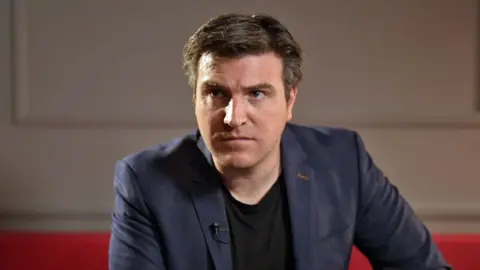
In many of the podcast episodes, the guests claimed to know a simple solution to health issues which they believed mainstream institutions were hiding from the public. They often also advertised their products on the podcast.
Cancer researcher Dr Thomas Seyfried appeared on the podcast in October. He is a proponent of using the ketogenic diet, a diet low in carbohydrates and high in fat, to treat cancer.
But Dr Grimes told us doctors warned patients against restricting their diet while undergoing cancer treatment.
“You could potentially and very realistically get very, very, sick and have a much worse health outcome than if you followed recommended advice from your oncologists,” he said.
In the podcast, Dr Seyfried also suggested radiotherapy and chemotherapy only improved patients’ lifespan by one-to-two months, comparing modern cancer treatments to “medieval cures”.
Mr Bartlett did not react to this claim.
Cancer Research UK statistics show that UK cancer survival has doubled in the past 50 years. In the US, the cancer death rate has declined 33% since 1990, thanks to modern treatments.
Dr Thomas Seyfried told us he “stands by the statements that he made in the interview”.
The solutions these guests are offering are appealing to listeners as they feel tangible and come without the side effects of pharmaceutical drugs, says Prof Heidi Larson, an expert in public confidence in healthcare.
“But they [the guests] are way overstretching. It sends people away from evidence-based medicine. They stop doing things that might have some side effects, even though it could save their life.”
Cécile Simmons, from the Institute of Strategic Dialogue, a think tank specialising in disinformation research, believes this type of content can help to grow audiences.
“Health-related clickbait content with scary titles does really well online with the algorithm amplifying that,” she said.
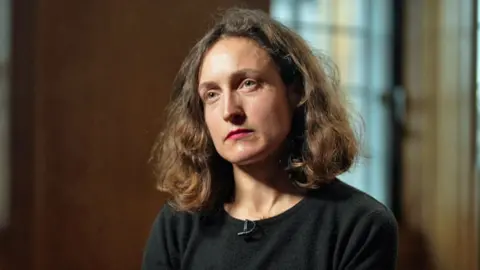
Mr Bartlett has dabbled in dubious health claims before.
In January, on BBC Two’s Dragons’ Den – where aspiring entrepreneurs pitch business ideas to five multimillionaire investors, including Mr Bartlett – he invested in “Ear Seeds”, acupuncture beads placed in the ear which falsely claim to cure chronic fatigue condition myalgic encephalomyelitis (ME).
After complaints, the BBC has since added a disclaimer in the episode and on iPlayer, stating the “Ear Seeds” are not intended as a cure, and medical guidance should be followed for ME.
A spokesperson for the BBC declined to comment.
He is also an investor in Huel, a meal replacement company – and Zoe, which sells a personalised nutrition programme involving the use of blood sugar monitors.
“He has financial stakes in health and wellness companies. And once you have financial interests, you have then the further interest in focusing on health and nutrition,” says Ms Simmons.
Two Facebook adverts featuring Mr Bartlett were recently banned by the Advertising Standards Authority (ASA) for promoting two Huel and Zoe products without disclosing he was an investor.
Founders of both companies have previously been invited as guests on The Diary of a CEO podcast.
A spokesperson for Flight Studio, Mr Bartlett’s production company said: “The Diary of a CEO [DOAC] is an open-minded, long-form conversation… with individuals identified for their distinguished and eminent career and/or consequential life experience.”
They heard a range of voices, they said, “not just those Steven and the DOAC team necessarily agree with”.
The BBC investigation had reviewed a “limited proportion of guests” out of the nearly 400 broadcast to date, they added.



